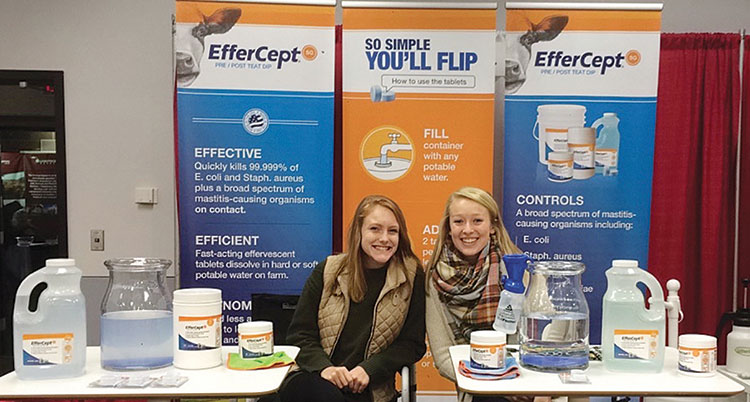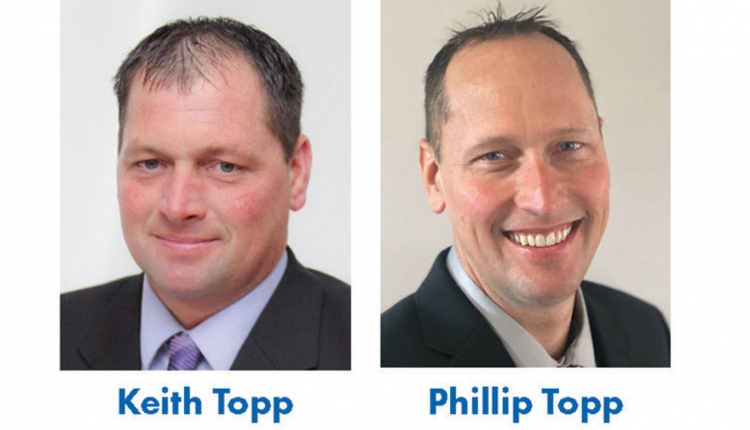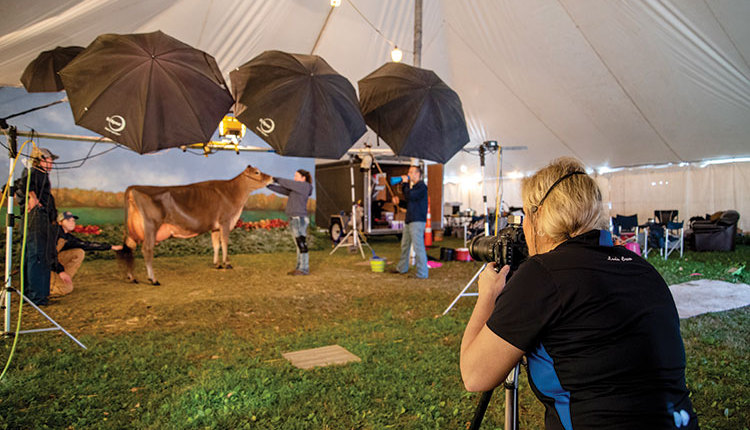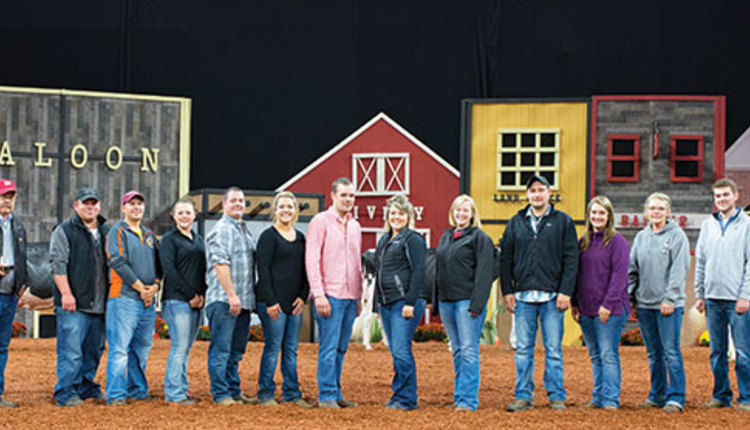
A partnership that was born out of necessity over 35 years ago has fostered a unique opportunity for college students and companies to connect during one of the dairy industry’s busiest weeks of the year. Members of the University of Wisconsin-Madison National Agri-Marketing Association (NAMA) student chapter become a part of a company’s booth staff during World Dairy Expo, offering a truly valuable experience for companies and students alike.
Sarah Botham is a faculty associate in the department of Life Science Communications and the adviser and marketing team coach for the NAMA student chapter at UW-Madison. While the partnership was originally developed to meet commercial booth staffing needs, Botham stated the bigger purpose has now become connecting companies with future employees and students with future employers.
“This experience offers students a unique combination of trade show and sales training in a real world environment,” she said.
Tom Wedegaertner, director of research and marketing for Cotton Incorporated, has worked with Wisconsin NAMA students since the partnership’s inception. “We needed some help to fill in the gaps, and for us, it was a no-brainer. Having a student there to assist and answer questions about cottonseed was an easy fit,” Wedegaertner reflected.
He recalled being contacted by the former UW-Madison student NAMA chapter adviser, Tom Schomisch, who offered the services of students to meet their staffing needs. That working relationship is still in place today. To date, he has worked with close to 50 students.
Lindsey Sarbacker is one of the students taking full advantage of this opportunity, having served as the 2018-2019 NAMA World Dairy Expo/Fundraising Chair. Most recently, she was elected UW-Madison NAMA Student Chapter President, a role that she looks forward to filling in the 2019-2020 school year. Sarbacker shed some light on how the partnership evolved.
“During the early 1990s, NAMA students worked for the exhibitors in their booths, selling magazine subscriptions or promoting a new product. Exhibitors would provide product features and benefits so the student could knowledgeably communicate with attendees,” Sarbacker said. “Now, exhibitors are taking advantage of technology and social media platforms.”
Botham added that exhibitors have given student workers more responsibility. To assist with this process, many companies provide information on their products and marketing strategies to allow students to familiarize themselves with the company’s vision prior to Expo.
Reaping the benefits
From a corporate standpoint, Wedegaertner sited it as a more cost effective way for Cotton Incorporated to staff the show. It allows the company to have someone in the booth who knows how to direct people to their website, literature, and other sources.
Furthermore, he said that having students from NAMA in his booth adds a familiar face and makes it more inviting. “The students know many of the people walking through the show and are familiar with the area, which makes them very relatable,” Wedegaertner continued.
The benefits for students are also well documented. This event has grown to be the club’s largest annual fundraiser of the year and is a completely student organized and run project.
Membership of the NAMA organization dictates the number of students available to work for commercial exhibitors. In 2018, there were 25 students covering booths, averaging 100 hours of work. In past years, they have had upwards of 35 students.
The process begins in summer when both Botham and the current Expo student chair are contacted by companies looking to NAMA to help fulfill their staffing needs. The Expo chair fields these requests as well as contacts exhibitors whom the club has worked with in the past.
Once all inquiries have been identified, the student Expo chair recruits fellow NAMA members to fill staffing shifts for these companies. Students are responsible for sending the invoices and collecting payment for Wisconsin NAMA.
“This program is really a feather in the students’ cap,” Botham stated. “Companies come back year after year and some even reach out for assistance with other events happening in the Madison area the rest of the year.”
This valuable partnership has truly become a win-win for both exhibitors and companies, making connections that lead to successful careers. Wedegaertner has seen firsthand how this networking opportunity has helped develop career paths.
“Students learn a lot about trade show marketing, products, and corporate culture,” he said. “This broad exposure to companies and their marketing techniques allows them to evaluate what sector of the agriculture industry might be a good fit for them.”
Sarbacker agreed that many success stories have come from this working relationship. “Informing attendees of the product or service of a particular company is a way for students to improve their soft sell communication skills,” she said. “Students have also pursued internships for companies that they either worked for or networked with during the week.”










